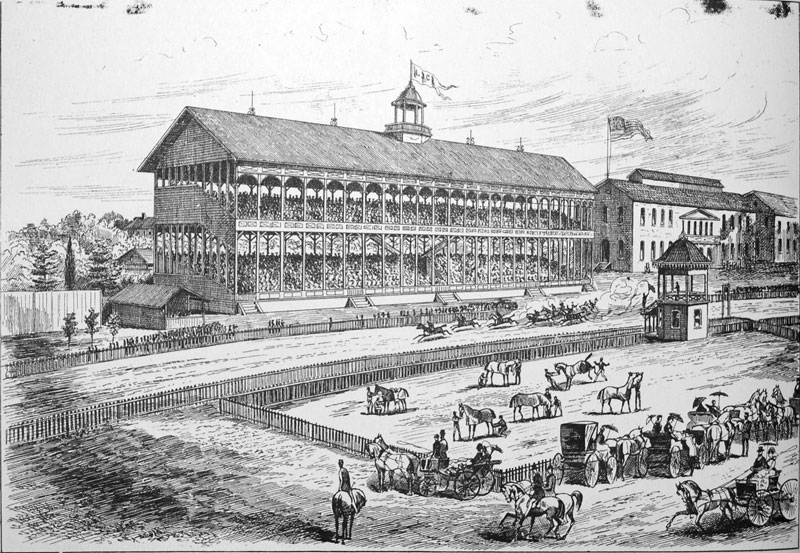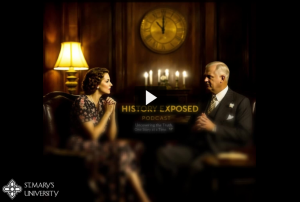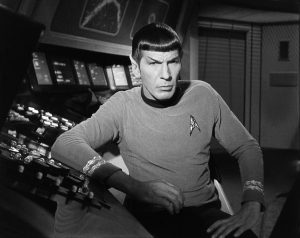Horse racing in North America began almost as soon as Europeans settled the colonies. The first racetrack, called the New Market, was established in 1665 near the site of the present-day garden city of Long Island in New York. Tracks rapidly developed wide appeal among the citizens, and horse racing spread along the Atlantic Coast quickly.1 By the time of the American Revolution, horse racing had already become popular in almost every colony. Moreover, it was moving well into the newly settled areas of the Southwest. Andrew Jackson was a founder of the first racing track in Nashville, Tennessee, in the early nineteenth century. By the 1800s, Kentucky had eight racetracks, due to its native bluegrass being recognized as ideal for grazing horses.2

Horse racing becomes much more important when we analyze life in early American society. Like almost everything else in the life of early America, the world of horse racing was separated by strong lines of class and race.3 For many years, it was considered the exclusive enjoyment for the rich gentleman. In 1674, a court in Virginia gave a fine to James Bullock, a tailor, who proposed a race. It was against the law for a laborer to make a race, and according to the court, horse racing was a sport exclusive to only rich gentlemen. While aristocrats retained control of racing, they were not the only people who participated. Southern aristocrats often trained young male slaves as jockeys for their horses, and northern horse owners employed the services of free blacks as riders. In America, African Americans eventually emerged as some of the most talented and experienced trainers of racing horses. Horse racing became very popular among the public. Despite social and legal pressures, free blacks and poor whites often staged their own informal races.4
Racing also reflected the growing sectional rivalry between the North and the South. In 1824, the Union Race Course on Long Island established an astounding $24,000 prize for a race between two famous thoroughbreds: American Eclipse from the North, and Sir Henry from the South. Surprisingly, the race between Eclipse and Sir Henry was America’s first national event.5 Eclipse won two of the three heats, but Sir Henry prevailed in another such celebrated contest in 1836. These intersectional races, which drew enormous crowds and created tremendous publicity, continued into the 1850s, until the North-South rivalry began to take a deadly turn.6

Horse racing remained popular after the Civil War, but two major developments changed its character considerably. The first development was the successful effort to drive African-Americans out of the sport. At least until in the 1890s, black jockeys and trainers remained central to racing. At the first Kentucky Derby, in 1875, fourteen of the fifteen horses had African American jockeys. Isaac Murphy, a black man, won a remarkable 44 percent of all races, including three Kentucky Derbies. Gradually, however, the same social dynamics that enforced racial segregation in so many other areas of American life penetrated to horse racing as well. By the beginning of the twentieth century, white jockeys and organized jockey clubs had driven almost all black riders and many black trainers out of the sport.7
The second change was the introduction of formalized betting in the sport. In the late nineteenth century, racetracks began creating betting systems to lure customers to the races. Race horses were moving into the hands of enormously wealthy families, and the audience for racing was becoming increasingly working class and lower middle class. The people who now came to tracks were mostly white men, and some white women, who were lured to the races not by the love of horses, but by the usually futile hope of quick and easy riches through gambling.8
As soon as the horse racing ideology was offered to the American society, the public showed great affection. Horse racing has become known as one of the most popular sports in America. Over time its development exposed the changes American society has gone through. Horse racing is still popular in America today, so popular in fact that a three famous races, the Kentucky Derby, the Preakness Stakes, and the Belmont Stakes, known together as the Triple Crown, are still held every May and June.
- Alan Brinkley, American History: Connecting with the Past Volume 2, 15 edition (New York: McGraw-Hill Education, 2014), 156. ↵
- Richard Locker, “Will horse racing and betting make a comeback in Tennessee?” Commercial Appeal, accessed December 6, 2016, http://archive.commercialappeal.com/news/government/state/will-horse-racing—-and-betting-on-them—-make-a-comeback-in-tennessee-327f1df7-521b-7209-e053-010-379234621.html. ↵
- Brinkley, American History: Connecting with the Past Volume 2, 15 edition, 156. ↵
- Brinkley, American History: Connecting with the Past Volume 2, 15 edition, 156. ↵
- Henry Cecil, The Racing Post: A Great Knight (London, Business Insights, 2011), 2. ↵
- Cecil, The Racing Post: A Great Knight, 2. ↵
- Brinkley, American History: Connecting with the Past Volume 2, 15 edition, 156. ↵
- Brinkley, American History: Connecting with the Past Volume 2, 15 edition, 156. ↵



77 comments
Jennifer Pogue
I’ve never watched a horse race before, but from movies I got the impression that they were for the upper class. Even though they were for the upper class, I didn’t think they would kick out those in poverty and African Americans. It is sad to think that is how the sport started out, but thankfully it has changed throughout the years and now everyone is welcome to partake in the sport.
Mario De Leon
This article was fun to read because it gave you an inside into what society did for fun in those days. I found it very interesting that horse racing was separated by social classes and at first only the rich could enjoy the sport. It was interesting that there was a North and South rivalry. It reminded me of the sports world today and how there is an East vs West rivalry.
Briana Bustamante
I loved reading this article. I gained so much insight while reading. For example, before reading i did not know that black men were the first jockey’s of the sport. I also learned that it wasn’t until a century later where the racetracks began creating betting systems to lure customers to come and watch the races. I feel that because they were able to gamble, this was one big reason why horse racing has grown and will continue to grow.
Bailey Rider
This article had a lot of information that I had never heard before. I think it is interesting to look at the origins of the sport and to see how it developed. I also like how you brought to our attention the racial segregation that appeared in the sport after the sport was already popular. It’s also cool information to know that Andrew Jackson was the founder of the first racing track in Tennessee.
Tina Valdez
I would imagine that a great deal of informal races occurred especially when the popularity first began. I found it interesting that the racing reflected Northern-Southern rivalry. It is interesting to see how a sport as popular as it is in America gained traction. Very interesting topic!
Yesenia Cardenas
I never imagined that horse racing was popular so early in American History. Who knew that grass from Kentucky made horse racing so famous for that state.
Rafael Ortiz Salas
Really good article. Its funny to know that the people went to the races just so they can gamble and get more money. Also, I find it interesting that the first jockeys were black men and the sport is related to the upper class. Good article. 🙂
Salvador Rodriguez Gomez
Very detailed and well done article. I never really thought about horse racing as a rich man’s sport as I kind of just assumed it was always open to all audiences. It’s cool to learn about the history of horse racing and your article did an excellent job of laying out the history and providing lots of relevant information.
Christian Lozano
What a wonderful portrait of Horse Racing in Early America. It is rather ironic the changes that occurred between the social classes and races place in Horse Racing. Good Job, keep it up.
Jacob Hall
This was an excellent piece. I truly enjoyed how you brought to light the fact the horse racing was primarily for the rich. However I was unaware of how involved African Americans were in the sport. Another thing that I found surprising was the fact that even though the spot was mainly for the rich, the poor were not supposed to be associated with it at all. however if you think about it the rich were probably trying to preserver there pass times from the poor, so it does make sense.